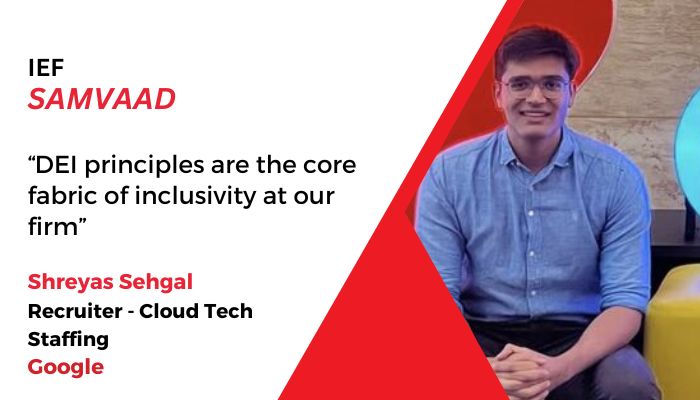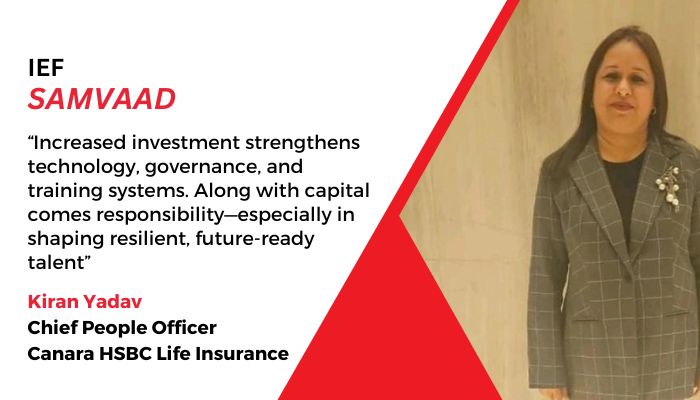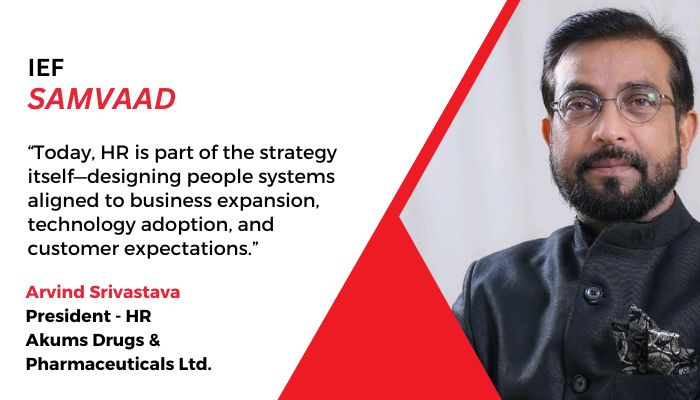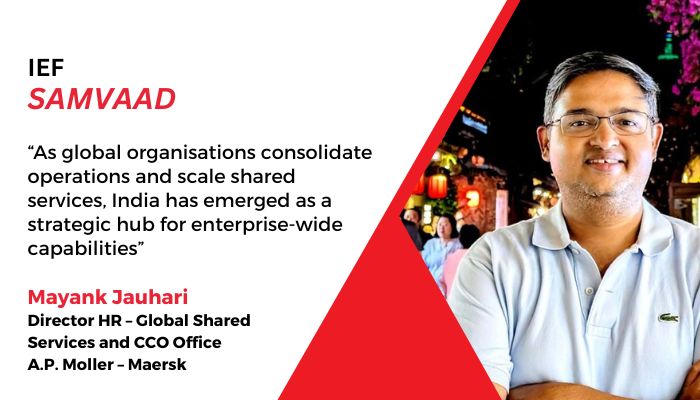Shreyas Sehgal, Recruiter – Cloud Tech Staffing, Google, speaks to the India Employer Forum about Ethical Hiring Practices with Artificial Intelligence (AI), DEI principles in recruitment, challenges in skill-based hiring and much more…
1. Do you follow a proven process to leverage AI for efficient resume screening while ensuring human oversight to prevent algorithm bias? Additionally, do you offer recruiter training on ethical hiring and bias mitigation, and how frequently is this reviewed and updated?
Yes, we use a proven process to leverage AI for resume screening here. Our applicant tracking system, like many others in the industry, is built in-house with leading AI Capabilities to match candidates to requisitions, suggest candidates from past applicant databases, and even let us know based on their past social media activity if they are likely to respond to recruiter communications or not. We do offer recruiter training on ethical hiring. However, every quarter, we do have bias elimination training. Biases can be of any form – gap years in the resume, gender, a candidate being from a different field, or from a smaller company. The objective of this training is to ensure that if a candidate meets the minimum and preferred qualifications of the role, they should be considered, with no other factors influencing their shortlisting criteria. This is reviewed and updated once every quarter.
2 .What are the best practices for ensuring that candidates are fully informed when AI is used in the hiring process? What steps are taken to ensure that hiring platforms and assessments are accessible to candidates with disabilities?
As of now, there are a few practices in place, internal to the organisation, for ensuring that they are informed. For example, for pre-interview assessments in tech roles, they are marked automatically, and results are also shared through automated emails. Hiring platforms are fully accommodated to candidates with disabilities. We make allowances such as providing extra time, sharing potential questions in advance in the case of learning disabilities and also other tools like screen readers or larger text while screen sharing. There is a whole candidate accommodations team which looks into this.
3. How does one weave DEI principles into the recruitment process, as it is being recognised as a means to improve business outcomes and enhance employer branding?
DEI principles are the core fabric of inclusivity at our firm. Weaving DEI into recruitment involves blind resume reviews, diverse interview panels, and inclusive job descriptions to broaden talent pools, enhance employer brand, and drive superior business outcomes. All of these steps are followed religiously at our firm to ensure an equitable opportunity for everyone.
4. What practices do you follow to collect, store, and use candidate data ethically and in compliance with regulations?
We have a collection of these labels during the application process. VSI labels – gender, Veteran status, Neurodivergence status, and PWD status are collected at the time of application. Once they mention that they are from these categories, the relevant tag gets attached to the profile as a “tag”. We can then count the number of these tags to pull out relevant data or information.
5. What challenges and ethical considerations have you faced when shifting to skills-based hiring from traditional degree-focused hiring?
We have a limited talent pool, particularly for tech roles, when we limit ourselves to skill-based hiring. Moreover, the bar for Google being quite high, the pass-through rate is lower for candidates who have come from non-traditional degree backgrounds as compared to traditional top premier degree backgrounds like IITs and NITs. The numbers speak for themselves, and there is no bias in stating this. Hence, the limited talent pool and the pass-through rate would be the biggest challenges.
6. How do you ensure job descriptions are inclusive and free from biased language or unrealistic expectations? Do you conduct regular bias audits on AI recruitment tools, and how are the results used to enhance hiring fairness?
We meticulously craft job descriptions using inclusive language guidelines and specialised tools to eliminate bias and ensure realistic expectations. Regular, independent bias audits are conducted on our AI recruitment tools to identify and address any disparities. The insights from these audits directly inform algorithmic refinements and process adjustments, ensuring a fair and equitable hiring experience for all candidates.
7. Do candidates receive feedback on why they were screened out or rejected, particularly when AI is involved? How do you ensure transparency in these decisions?
Even if screened out or rejected, recruiters have to use the right rejection or disposition codes (the valid reasons, stating why they are rejecting an applicant). This ensures that the right reason is auto-populated in the note to the candidate, which goes out as the rejection mail from the ATS. Hence, this transparency is well maintained.
About Shreyas Sehgal
Shreyas is an HR professional currently working as a Recruiting Business Partner (TA Specialist) at Google India, focusing on Product Areas under Google Cloud. An MBA graduate in Human Resources from SCMHRD Pune (2022–24), he brings strong expertise in talent acquisition, employee engagement, and HR analytics. With prior experience across startups and IT enterprises, he has developed campus hiring strategies to promote inclusivity and worked extensively on end-to-end recruitment. Skilled in ATS, dashboards, and HR tech tools, Shreyas collaborates with cross-functional teams to design and implement strategic hiring solutions aligned with organisational goals.
Disclaimer: The opinions and views expressed in this article, including any accompanying data, are the sole responsibility of the author and should not be construed as reflecting the official policy or position of India Employer Forum.






